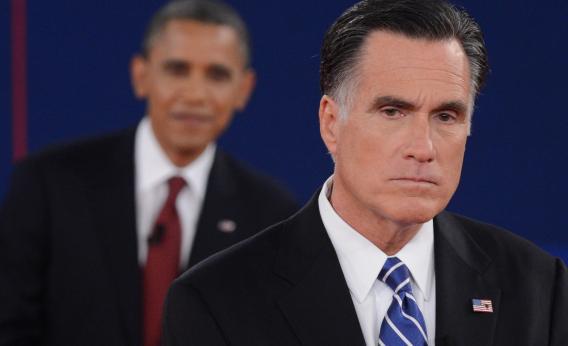Everyone fact-checks these days, so rather than quibble about the facts, let’s tackle the ideas here. Specifically, discuss a few bad ones on economic policy that were kicking around the hall:
1. North American Energy Independence: This Romney campaign talking point has been driving me crazy forever. It used to be that politicians touted American energy independence, which was pretty crazy, but then the Keystone XL pipeline to import oil from Canada became a big conservative issue so they pivoted to “North American” energy independence. But the idea that we should import energy exclusively from Mexico and Canada is even more pointless than the goal of energy autarky. The price of oil American households pay is set on a global market, and if you import energy from anywhere—including Mexico and Canada—the impact on “terms of trade” still exists.
2. Manufacturing Jobs for Everyone! It was odd that Barack Obama brought up promotion of manufacturing jobs, specifically in the context of telling a college student what kind of job he’s hoping he’ll be able to get after he graduates. It’s a sign of the president’s unreasonable level of interest in this particular sector of the economy. If we promote broad economic recovery, manufacturing employment will almost certainly go up, which is all to the good. But the long-run stagnation of manufacturing as a share of U.S. employment is driven by deep social and technological trends that Obama’s not going to reverse. Sadly, instead of saying that Romney simply suggested that his energy policies (see above) are the real key to sparking the impossible manufacturing rennaissance.
Advertisement
Advertisement
Advertisement
Advertisement
3. E-Verify: Mitt Romney is normally very upset about the potential job-killing impact of regulations, except when it comes to the idea of creating new and stricter regulatory supervision of who businesses are hiring! It’s easy to see why investing extra resources in hounding potential unauthorized migrants out of jobs would be bad for the migrants and their employers, but high levels of immigration also turns out to boost the wages of native-born American workers, so there’s just no reason to do this.
4. Incentivize Business Hiring With Personal Income Tax Cuts: Here’s Romney on why he wants to reduce individual income tax rates: “when you keep rates down, it makes it easier for those businesses to keep more money and hire more people.” This would make sense if Romney were talking about cutting sales taxes, but he’s talking about the income taxes that owners of small businesses pay on their profits. Any money you spend on hiring workers is not profits and thus, by definition, not subject to the tax in question. Politicians keep saying things like this, but it’s totally wrong.
Advertisement
5. Sales Taxes on Chinese Goods: There’s something to this business of Chinese currency policy having a negative effect on U.S. employment, but rather than pushing the sensible solution to this—expansionary monetary policy in the United States—Romney touted the idea of higher sales taxes (that’s what tariffs are) on products made in China. Now if the Chinese see this threat, immediately back down. and implement the currency policy we want, and then Romney never has to do it then that’d be nice. But if you go through with the tariffs, first you reduce Americans’ real income by subjecting them to higher taxes, and second you’ll hurt U.S. exports to China when the inevitable retaliation comes. When faced with a global recession, we want major economies to play “currency wars” (i.e., expansionary monetary policy as everyone tries to devalue) not “trade war” (i.e., contractionary fiscal policy as everyone raises sales taxes).
This is, you’ll note, not a balanced list. The bulk of the bad ideas came from Mitt Romney in part because the incumbent simply doesn’t have much in the way of a new forward-looking agenda and the candidates didn’t get into Affordable Care Act implementation, which will be a huge deal if Obama wins.
